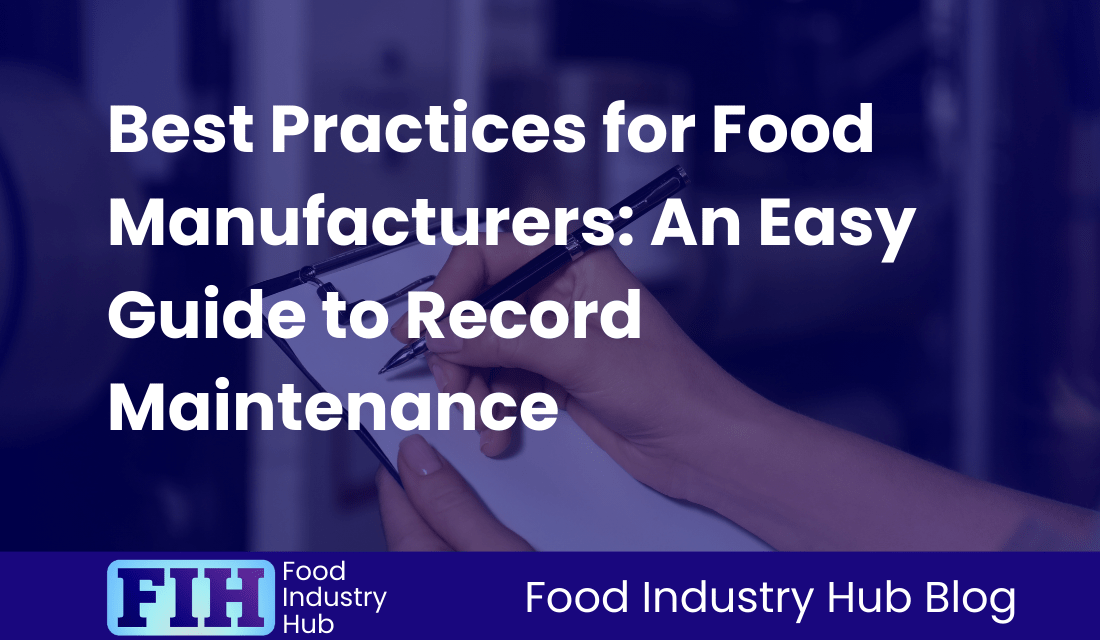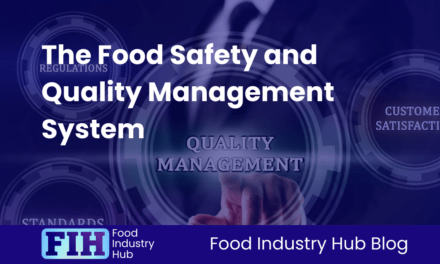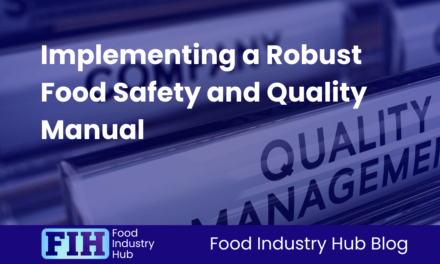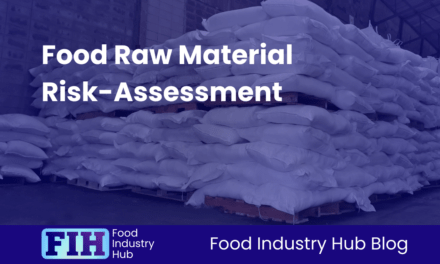Introduction
Maintaining good records is one of the most important practices for food manufacturing businesses. It is essential to have accurate, legible, and properly formatted records that are in good condition and preserved from loss or damage. In this post, we will discuss the importance of record maintenance for food manufacturers, as well as some of the challenges associated with maintaining such records. We will provide insight on different system types such as paper copies versus digital storage and cloud-based backups. We’ll also talk about record retention policies, how to ensure compliance with legal and customer requirements, and ways to maintain a complete set of documents which should help any food manufacturer better manage their business operations.
Table of Contents
The Importance of Record Maintenance: Why Is It Important for Food Manufacturers to Keep Accurate Records?
The importance of record maintenance for food manufacturers cannot be overstated. Keeping accurate records is essential to ensure compliance with legal and customer requirements, as well as to maintain a comprehensive set of documents that can help businesses manage their day-to-day operations. Proper record keeping also helps protect against potential risks such as product recalls, which can have devastating financial implications for any business. Having good records enables better decision-making by providing an easily accessible source of information on production processes and performance metrics. For these reasons, it is absolutely critical that all food manufacturing companies dedicate resources towards properly storing and maintaining their records in order to ensure the success of their operations moving forward.

Boost your food safety and compliance interventions with Food Industry Hub Management Systems, designed exclusively for food manufacturers.
The Challenges of Record Maintenance: What Are the Challenges That Food Manufacturers Face When Trying to Maintain Accurate Records?
Maintaining accurate records is an important part of any food manufacturing business, but it can also be a challenge. One of the most significant challenges is having the right systems in place to store and organise data. Paper copies are still commonly used by many businesses; however, they require manual input and can become disorganised over time. Digital storage solutions such as cloud-based backups offer more secure alternatives that allow for better organisation and easier access to information when needed. Additionally, there are compliance issues related to record retention policies that must be taken into consideration, as well as customer requirements which may vary depending on the sector or product type being manufactured. Finally, ensuring that all documents are up to date with current regulations and standards can also be difficult for some food manufacturers who don’t have regular processes in place for reviewing their records on a regular basis.

Record Legibility – Process Records Are Only Useful If They Can Be Read and Understood
Record legibility is an important aspect of record maintenance for food manufacturers. It’s imperative that all records are in a format that allows them to be read and understood, as process records can only be useful if they can be interpreted accurately. Legible records also help ensure compliance with legal and customer requirements, as well as providing accurate information which is essential for businesses to make informed decisions. Poorly written or illegible documents can lead to misunderstandings which could result in costly errors or missteps down the line. To prevent this from happening, it’s important for food manufacturers to use good handwriting, language, and presentation when generating process records so that everyone involved will have a good understanding of what has been documented.

Sign-up for the Food Industry Hub Mail Service
We regularly produce new content for food industry professionals, and the Food Industry Hub Mail Service is the best way to stay up to date with the latest additions.
Signup today to be added to the Food Industry Hub mailing list.
Maintaining Records in Good Condition, Free from Loss, Degradation, And Damage
Maintaining records in good condition is essential for food manufacturers. Records must be kept free from loss, degradation, and damage to ensure accuracy and compliance with legal and customer requirements. It’s important for food manufacturers to have systems in place for properly storing documents so that they remain intact over time. This includes using secure digital storage solutions such as cloud-based backups, as well as having a record retention policy which outlines how long certain documents should be stored before being destroyed or archived. Proper consideration should be given to risks from fire, water damage, discolouration and light damage, and any other process that could lead to loss of data. Properly maintaining records can help protect against potential risks such as product recalls while also providing accurate information which is essential for businesses to make informed managerial decisions.
Systematic Filing and Administration for Access and Retrieval
Systematic filing and administration are essential for managing records in any food business. It’s important to have a system in place which allows for quick and easy access and retrieval of documents when needed. This can be achieved by organising files into categories, such as date created or customer name, so that they can be quickly located. Additionally, it’s a good idea to create an index which lists all the different types of documents available and provides details on where each one is stored within the filing system. This will make it easier to retrieve information whenever it is required. Additionally, having digital copies of important documents also ensures that data remains secure even if there are issues with physical storage systems such as fires or floods. By implementing systematic filing and administration processes for their records, businesses can ensure that information remains accessible while helping protect against potential risks down the line.

Justification And Authorisation for Any Alterations to Records
Justification and authorisation for any alterations to records is an important step in the record keeping process. Without it, food manufacturers are at risk of making changes that could lead to costly mistakes or even regulatory fines. To ensure that all changes are properly documented and authorised, it’s essential for businesses to have a system in place which includes clear documentation on why certain modifications were made as well as who approved them. This should include details such as dates and times when the change was requested and/or authorised, what specific alteration was made, and who signed off on it. Having this information readily available can help protect against potential risks while also providing a transparent audit trail if needed in the future. Many food manufacturing companies make it a rule that if an alteration is made, a single strikethrough is applied and the change initialled by the person making the change.
It’s also important for food manufacturers to make sure that their staff members understand the importance of justification and authorisation when making changes to documents or records. Employees should be aware of any relevant policies or procedures related to document alterations so they can follow proper protocol whenever necessary. Additionally, having regular training sessions dedicated towards informing staff about these processes will help ensure everyone involved understands how they should go about requesting permission before making any adjustments which could potentially impact compliance with legal requirements or customer expectations.

Electronic Records Versus Paper Copies – Why You Should Go Digital
In today’s digital world, it’s becoming increasingly common for businesses to store records electronically instead of relying on paper copies. Going digital can offer a number of benefits over traditional methods such as improved data security, faster access times and greater accuracy. Electronic records are also easier to store and manage since they don’t take up physical space like paper documents do. Additionally, with the right software in place, businesses can quickly create automated backups so that important information is never lost or corrupted due to computer failure or other issues. It’s also much simpler for multiple users to collaborate when working with electronic documents compared to having multiple versions of a paper document floating around an office.
The switch from paper records to electronic ones may seem daunting at first, but the long-term advantages make it well worth considering. For one thing, electronic files tend to be far more secure than their hard copy counterparts which makes them ideal for storing sensitive data such as customer details or processing information without fear of unauthorised access. In addition, going digital helps eliminate manual errors associated with relaying data from hard copies which can help improve accuracy and efficiency when dealing with large amounts of information. Finally, companies that go digital often find themselves saving money since they no longer need to purchase physical storage systems or pay staff members overtime hours just because they are trying desperately trying keep track of dozens upon dozens of different paperwork stacks!
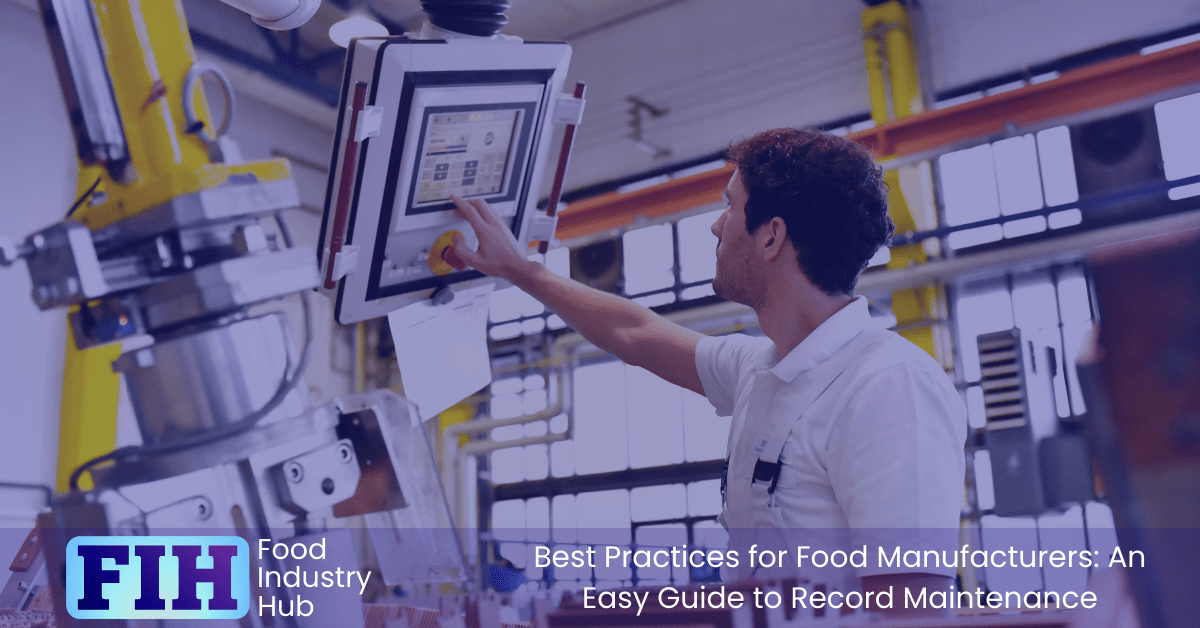
Advantages Of Cloud Storage – Secure Storage, Access Controls, and Backup Protection
The advantages of cloud storage are becoming more and more apparent to food businesses. With the ability to store large amounts of data securely, access controls allowing only authorised personnel to view or manipulate information, and backup protection ensuring that data is never lost in the event of a system failure or other issue, cloud storage can provide an incredibly useful service for any business. Not only does it provide a secure environment for sensitive data but also offers an easy way for employees across multiple locations to collaborate on projects since all files are stored in one central place with no need for physical copies. Cloud technologies often come with powerful analytics capabilities which allow companies to gain valuable insights into their operations.
Cloud storage also provides added peace of mind by offering superior levels of security compared to traditional methods such as hard drives or USB sticks. By using encryption techniques and other safeguards against unauthorised access, businesses can rest assured that their most important documents remain safe from prying eyes even if they were somehow stolen or otherwise compromised. Furthermore, many cloud services now offer additional layers of protection like two-factor authentication which help ensure that only those who should have access get it while keeping everyone else out! Finally, thanks to its automated backup features, users can be sure that their critical data is always protected regardless of what happens – something no physical device could ever guarantee.
Record Retention – What Legal or Customer Requirements Should You Consider?
When it comes to record retention, there are a number of legal and customer requirements that need to be taken into consideration. Depending on the nature of your business, you may be obligated to keep certain records for a minimum amount of time in order to comply with local laws or industry regulations. Customers themselves often have expectations regarding how long their data will be kept on file, so it’s important to make sure these needs are met as well.
Businesses should also think carefully about what sort of records they need to maintain and how long they should be stored for. It is generally accepted practice that only documents relevant to operations or transactions should be retained – any unnecessary paperwork can quickly become cumbersome and difficult (not to mention expensive) for companies trying store large volumes over extended periods of time. Ultimately, the best way for a business ensure compliance with all applicable legal requirements while meeting customer expectations is by creating an effective document management system which allows them easy access their records whenever needed without taking up too much space or resources.

In Summary
In summary, record completion and maintenance are essential for any food manufacturing business. Regularly completed records provide important information on the safety of products, customer complaints and operational assurance and compliance, allowing businesses to easily meet regulatory requirements. Furthermore, well-maintained records help ensure that management is aware of all potential risks associated with their operations. By using cloud storage solutions as a secure repository for these documents, companies can quickly access them whenever needed while also significantly reducing the amount of physical space required to house paper files. Finally, by utilising analytics capabilities offered by many cloud providers today businesses can gain valuable insights into customer behaviour which could lead to improved processes and better overall performance in the long run.
Many challenges can be faced when trying to maintain accurate records – from legibility issues to systematic filing and authorisation of changes. The advantages of digital record keeping with cloud storage are numerous, most notably in terms of safety and secure backups. Lastly, it is important to consider customer or legal requirements when it comes to record retention. Although challenging at first glance, accurate records are a cornerstone for successful food manufacturing businesses.
Further Resources
Food Industry Hub serves the food industry with a range of digital resources for the benefit of both commercial food manufacturers and food industry professionals.
For food manufacturers, we offer integrated management systems that give every user a direct interface with your QMS.
For food industry professionals, we provide an extensive signposting service in addition to informational content we hope you’ll find useful as you face new professional challenges. We have very ambitious plans to expand the range of services offered, and currently present informational content on management, safety and quality, and professional success.

